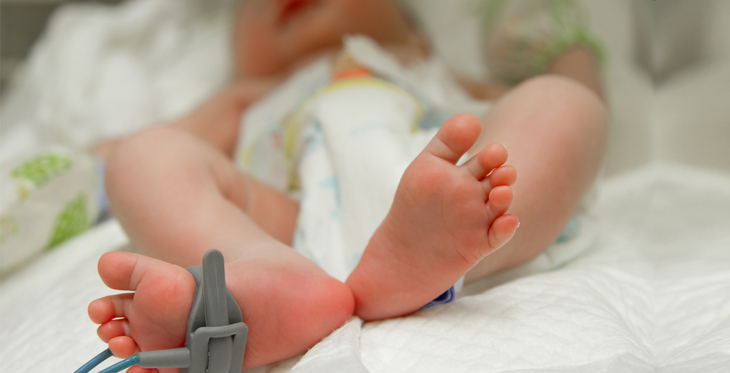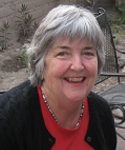Neonatologist Greg Warda, MD, arrived at Yuma Regional Medical Center 15 years ago, the hospital's only full-time neonatologist, and medical director of its neonatal intensive-care unit.
Back then, Warda's most urgent challenge was determining when a sick baby could remain in the Yuma hospital or needed to be transported to a larger hospital where multiple specialists could oversee the baby's care.
If a baby showed signs of congenital heart disease, for example, diagnosing the problem could take hours, even days. An echocardiogram would have to be done, and sometimes meant the study had to be repeated. In any case, the echocardiogram – either on paper or DVD – would have to be shipped to Tucson or Phoenix or San Diego to be read by a pediatric cardiologist.
It could take a week or 10 days to get a final diagnosis.
For the parents of the newborn, it was an agonizing process, often compounded by the need to transport their baby to a larger hospital, 200 or more miles away. Families often were split apart. The father likely had to stay in Yuma to work. If the mother had a C-section, she might have to stay behind as well. And even if she could go, there was the problem of lodging, and being able to afford it.
"There were just all kinds of issues, for us and for the parents," Warda recalls. "Fortunately, a lot of that has changed."
Saving Lives with Telemedicine
The change came in 2006, when Yuma Regional Medical Center signed on with the Arizona Telemedicine Program.
That linked Warda and his team at Yuma Regional – which, since 2009, includes Nedal Machhor MD, the hospital's second full-time neonatologist – to the pediatric cardiologists and other specialists at The University of Arizona Medical Center in Tucson.
Instead of having to ship a DVD, the echocardiogram can now be transmitted over the broadband telemedicine network. In most cases, Warda gets a definitive diagnosis almost immediately, or within the same day.
"We've had a number of cases where we would hear a (heart) murmur on a baby who was otherwise fine, only to find out that the baby had to be transported immediately," Warda says. "And if we hadn't been able to do that echo via telemedicine, we would have let the baby go home, and the baby would have come back to us in heart failure or worse, the baby could have died.
"Telemedicine has saved so many babies."
Improving Care with Virtual Coaching
Dr. Daniela Lax heads the University of Arizona Health Network's tele-echo program, which includes her and four other pediatric cardiologists. Another huge benefit of telemedicine, Lax says, is that the pediatric cardiologist is often available to view the echocardiogram while the technician is doing the study.
"That allows us to coach the technician, to tell them if we need a closer look, for example, and the result is that they are now very well trained to do excellent studies," Lax says.
Each week, Lax's group consults on four or five Yuma pediatric echocardiograms, she says. The doctors also spend a day and a half each month in Yuma, following up on babies and children who were born with heart disease or defects.
While most of the cases referred to Lax and her colleagues involve newborns, the doctors see patients as old as 18, or older if the patient was born with congenital heart disease.
Collaborating for Better Patient Care
This collaborative effort resulted in the publication of a seminal article authored by Lax, Warda and colleagues. Published in 2012 in Telemedicine and e-Health, the leading telemedicine journal, it confirmed that neonatal echocardiograms viewed and interpreted via telemedicine are as accurate as echocardiograms recorded and shipped to the interpreting physician in another city. And both are "indispensable in the remote diagnosis of congenital heart disease."
Warda expects telemedicine will continue to play a vital role in his newborn ICU, especially as the technology continues to evolve.
"I can't say enough about the cardiologists over in Tucson," Warda adds. "They've all been wonderful. They've all made themselves as available to us as they can be. They have never hesitated to help us out.
"It's also really nice just to be able to talk to them while the study is going on," says Warda. "It builds up a camaraderie and a comfort zone when you can put a face to the name.
"The greater benefit is to the families," Warda says. "They can be right there with their baby and get a diagnosis from the cardiologist in Tucson almost right away. And I can tell you, when you have a baby who's sick, that means so much, instead of having to wait until tomorrow or the next day, or even longer to get an answer."
Yuma Regional Medical Center has one of the top-ranked neonatal ICUs in Arizona. One reason is the Arizona Telemedicine Program, which helps the hospital fulfill its promise of "care close to home."

